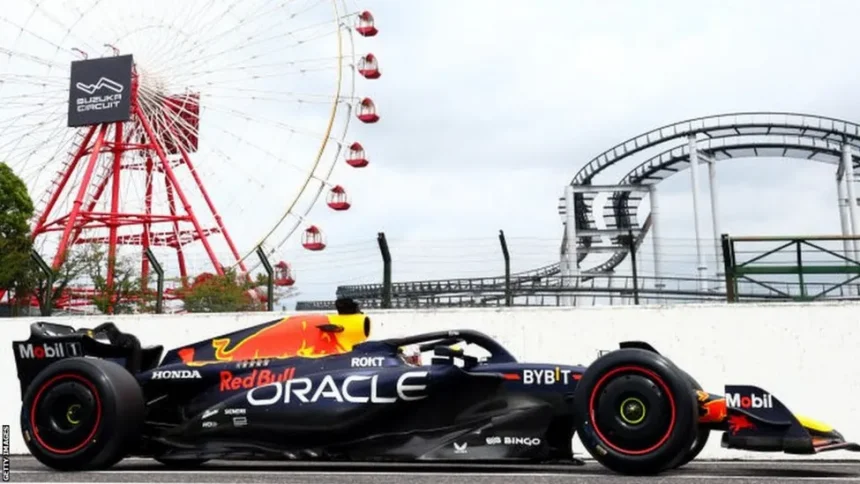Osaka, which had expressed interest in holding a street race there in the upcoming years, has expressed resistance to the track.
Suzuka was described as “special” by F1 president Stefano Domenicali.
The Japanese race, which was formerly staged in the fall, will now take place in April of this year.
This is a step toward F1’s goal of becoming net-zero carbon by 2030 as part of its ongoing sustainability efforts.
Relocating Japan to a period of the year when it competes against Australia and China shortens the distance that freight must travel across the world.
Despite the sport’s recent shift in that way, F1 felt it was unfathomable to replace a circuit of such stature with a street race, as Suzuka is thought to be probably the hardest test for drivers on the schedule.
Domenicali remarked, “Suzuka is woven throughout the fabric of the sport.” “So I am delighted that F1 will continue to race there until at least 2029.”
The Japanese Grand Prix, which takes place between the Australian and Chinese events from April 5–7, is the fourth race of the season.
Honda-owned Suzuka hosted Formula One (F1) for the first time in 1987 and has since become legendary in the sport due to the demands its combination of fast turns and stunning backdrops make on drivers.
Those included the contentious championship races between rivals Ayrton Senna and Alain Prost in 1989 and 1990, which resulted in a collision involving them both.







